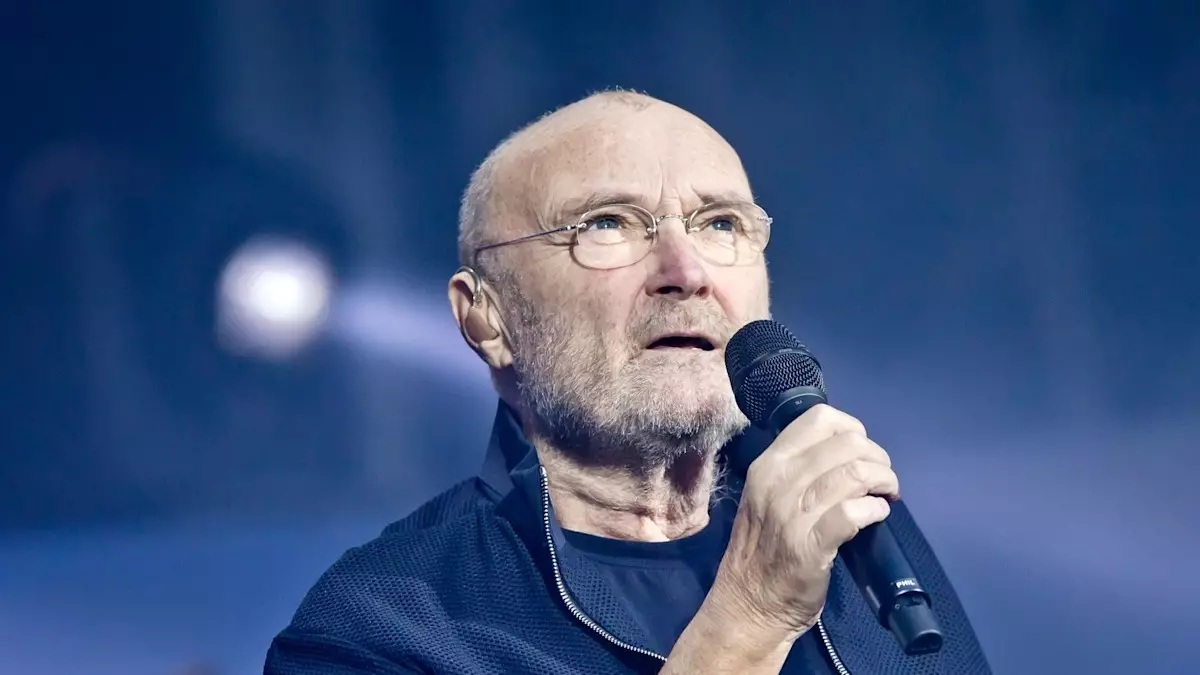Phil Collins, the legendary musician known for his remarkable career as the drummer and frontman of Genesis, has recently provided an emotional health update that reveals a disappointing deterioration in his physical well-being. At 74 years old, Collins, who is also the father of Lily Collins from “Emily in Paris,” has expressed a profound disconnect from his passion for music, which he once embraced with fervor. During a recent interview with MOJO magazine, the Grammy-winning artist candidly articulated that his health issues have extinguished his creative drive: “I keep thinking I should go downstairs to the studio and see what happens,” he reflected. “But I’m not hungry for it anymore.” This confession paints a poignant picture of a musician grappling with the painful reality of lost capabilities.
Collins formally announced his retirement in March 2022, performing his last show at London’s O2 Arena alongside his Genesis bandmates, Mike Rutherford and Tony Banks. This marked the end of an illustrious career that began when he picked up drumsticks at the tender age of five. In a revealing YouTube documentary titled “Phil Collins: Drummer First,” the artist discussed the toll that decades of high-octane performances and drumming had on his body. Emphasizing the shock of no longer being able to drumming, he stated, “It’s still kind of sinking in a bit… To suddenly not be able to do that is a shock.” These reflections are filled with emotional weight, revealing the depth of loss connected to ceasing an art form that has defined much of his life.
The Physical Toll of Artistry
Phil Collins’ comments highlight not just a loss of musical ambition but also a deep acknowledgment of the physical ramifications of his lifelong craft. Years of performing live have borne heavy consequences, particularly on his hands and legs. He mentioned, “Drumming has taken its toll on my hands and legs,” an unsettling acknowledgement from a musician whose skill was once both revered and characterized by endurance. This revelation brings to light a broader issue within the music industry, where the physical demands placed on artists very often lead to long-term health conditions.
This aspect of Collins’ journey was echoed by his son, Nic Collins, who stepped in as the drummer for Genesis during their final tours. Nic candidly commented on his father’s experience, noting that musicians often feel invincible. “Musicians, people in bands in general, had this thought that they were invincible,” he stated in the documentary. Such sentiments underline the facade of strength that artists project while quietly battling the repercussions of their art. Nic’s reflections also hinted at the realization that physical vulnerability is a harsh truth even for those who seem eternal on stage.
Collins’ health tribulations date back to 2007 when he dislocated a vertebra in his neck, leading to grave nerve damage in his hands. This trauma crystallizes the irony that the very art form that crafted his fame also extracted toll on his body. He disclosed, “My vertebrae have been crushing my spinal cord because of the position I drum in. It comes from years of playing.” This statement underscores the often-overlooked struggles that musicians endure in maintaining both their passion and physical health.
In subsequent interviews, including a poignant moment on BBC Breakfast in 2021, Collins expressed the frustration of his physical limitations. “I’m kind of physically challenged a bit, which is very frustrating because, you know, I’d love to be playing up there with my son,” he lamented, echoing the sentiment that his enduring love for music remains overshadowed by the reality of his physical struggles.
The Final Chapter
As Phil Collins steps further away from the spotlight, his journey serves not just as a testament to a remarkable career but also as a sobering reminder of the costs associated with artistic excellence. The complex blend of passion, talent, and the toll of time reveals a narrative that resonates deeply with many artists. Collins’ story embodies both the triumph of a celebrated legacy and the poignant acceptance of life’s fleeting nature—one that leaves an indelible mark on fans and fellow musicians alike. His legacy will continue to inspire, but his battle highlights a crucial conversation around artists’ health that merits greater attention.

